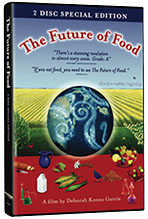Demand Superior Communication Skills
CREATIVE conflicts are fine as long as they don’t deteriorate into personality conflicts. The most deadly personality clashes will cost you big time, because you will either be stuck with miserable rapport or foot the bill to hire someone else. Most directors suffer with the former because after investing in an editor to watch hundreds of hours of footage, they can’t afford to hire someone else to start from scratch. All this can be avoided if you make the right hiring decision.
Tip #5: Demand Superior Interpersonal Communication Skills.
How will you know if someone is a good communicator? In your initial interview, determine if they listen well. If they seem confused, do they ask clarifying questions? Do they seem capable of expressing a divergent viewpoint? Are they able to intuit your vision? Ask them to repeat it back.
Editor Vivien Hillgrove (The Devil Never Sleeps, The Future of Food) admits to “giving good phone for the initial conversation”. She says that before cutting a frame for The Devil Never Sleeps, director Lourdes Portillo played Song for Athene sung by Celilia Bartoli. Hillgrove was immediately able to intuit Portillo’s vision for the film from the music. “Communication is a subtle thing,” says Hillgrove. “Body language, a hesitation before speaking, are all part of a complex relationship.” She says that later in the editing process, “when there is an argument regarding a scene or piece of VO with a director, you just hash it out until one of you gets tired, then you try it, and if it works, great. If not, you try something else.”
The need for terrific communication skills increases exponentially in situations where two directors are co-creating a film and hashing out structural issues with a third voice in the triangle, the editor. Director Nancy Kates, who co-directed Brother Outside with Bennett Singer, says that “no matter how sincere and committed everyone is, having more than one director is always going to be a lot more complicated than a single director, especially for the editor.” Kates recommends setting up ground rules for dealing with communication issues before they arise. “When I was in film school,” she says, “I cut out a quote from one of my documentary books and pasted it above my editing bench. It said something to the effect that documentaries are only as good as the relationships that allow them to be made. This is usually thought of in terms of one’s relationships with interviewees, but is just as true among members of the team or crew.”
So, what kind of ground rules or preliminary communications are important for your potential editor to know?
Written documents may include deliverable and deadlines for assembly, rough cut, fine cut, etc. (see Tip #2), but also your goals for the film. Communicating your goals in writing establishes you at the helm of the film and gives the entire post-production team a compass to keep everyone working together harmoniously. At New Doc Editing, we offer a free writing exercise called DOVES, which stands for Director’s Outcome, Vision and Editorial Statement. You can access DOVES at https://newdocediting.com/client-resources/doves/. The Outcome Statement outlines the director’s tangible goals for the film, such as projected release date and desired festival screenings. The Vision Statement describes the film’s intended emotional effect. Specifically, how does the director want viewers to feel when the credits role? The Editorial Statement specifies the storytelling strategies the director is choosing (with help from the editor) to achieve the outcome and vision goals.
Of course, not every producer/director will take a few minutes to outline their objectives in writing, but if you do take this safeguard for ensuring that the people you hire stay with you, you’ve made an important investment during an economic downturn. Your team is waiting to hear from you!
